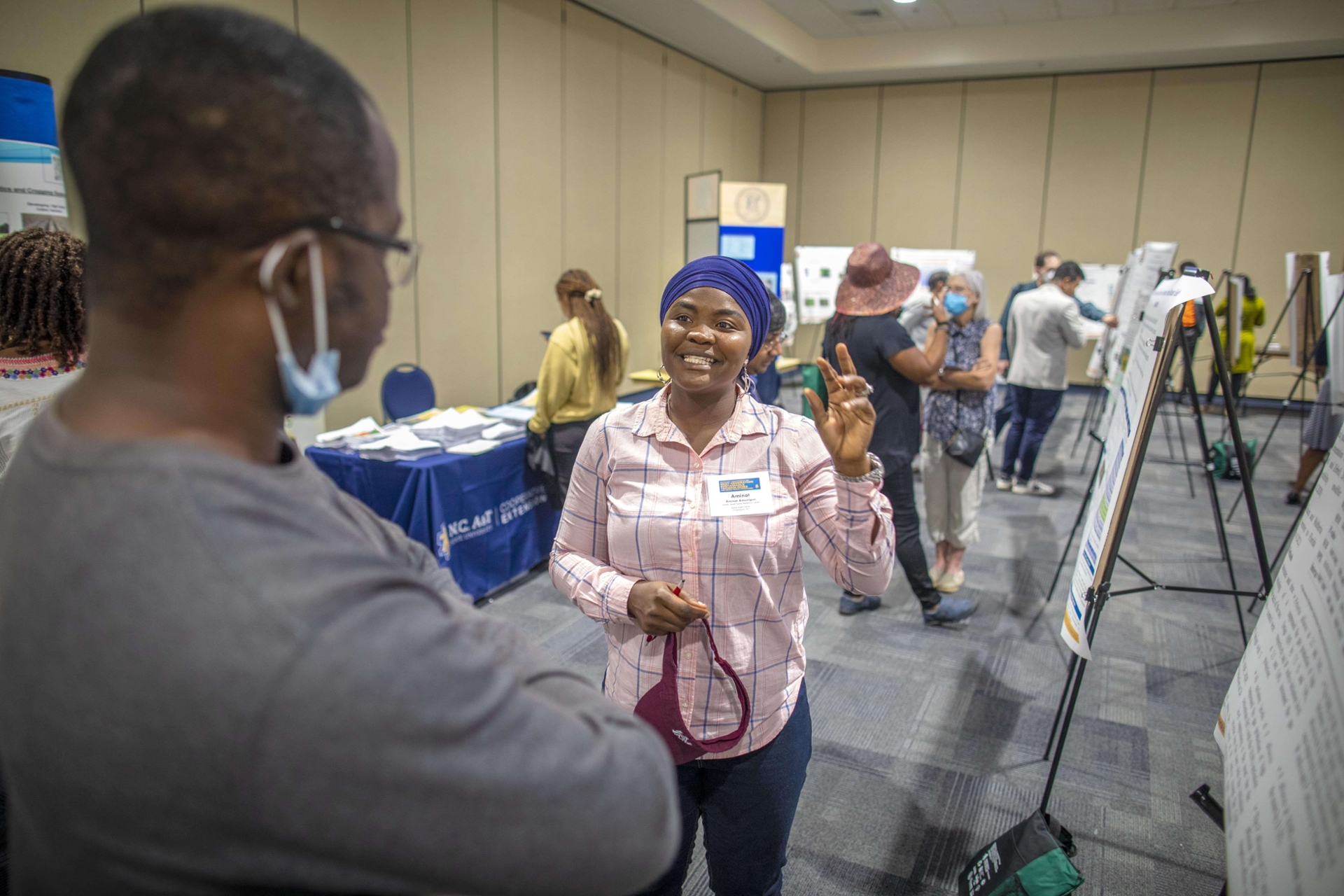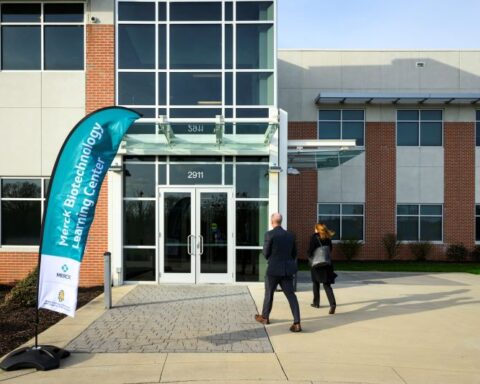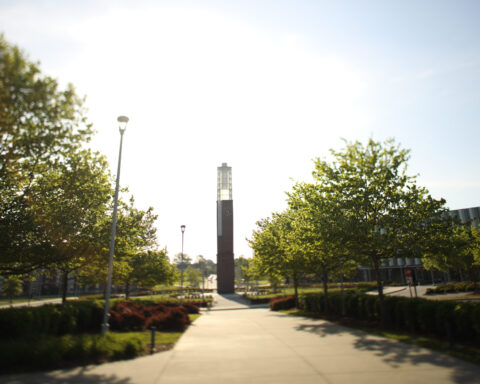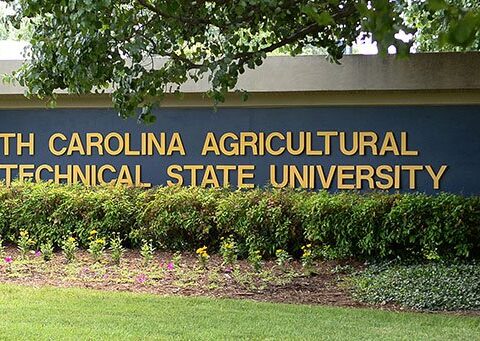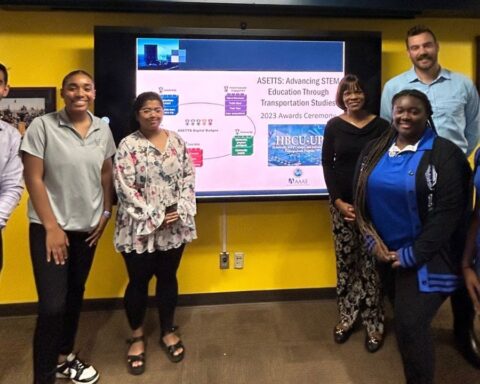By Lydian Bernhardt
Small-scale producers from around the country gathered at North Carolina Agricultural and Technical State University to share ideas and experiences on such topics as farm justice, environmental impacts and innovations in growing practices during a three-day sustainability conference this month.
Small farmers, Cooperative Extension agents, researchers, educators and policy makers from such agencies as the U.S. Department of Agriculture and the U.S. Environmental Protection Agency joined the College of Agriculture and Environmental Sciences in the inaugural National Conference of Next-Generation, Sustainable Technologies for Small-Scale Producers.
“Access to capital and to sustainable technologies continues to be a major barrier for small-scale producers,” said Godfrey Uzochukwu, Ph.D., chairman of the conference’s organizing committee. “We want to create a road map for delivering next-generation technologies that supports sustainable production, and to consider how to provide affordable access to those technologies.”
According to Uzochukwu, the university will work closely with small-scale producers, USDA, EPA, and other agencies to develop these solutions.
In presentations, seminars and round-table discussions, growers and non-producers alike discussed resources and barriers for small-scale growers, including a lack of access to technologies used in “precision farming,” in which technology plays a pivotal role.
Devices such as wireless soil-moisture sensors and integrated computing platforms can be prohibitive for small-scale farmers, said Kathleen Liang, Ph.D., W.K. Kellogg Distinguished Professor of Sustainable Agriculture.
“Large, commercial farms dominate value and generation from a production perspective,” said Liang, “but small farmers do the most important things throughout our rural communities: maintaining working farmland and keeping the rural life. Keeping agricultural dreams alive – that’s a small farm.”
Roxanne Wallace, of Roxanne Sustainable Farms and Gardens in Alabama, said she would like to do more community outreach, as well as see more engagement with farm agencies to help limited-resource growers.
“You can’t do it all by yourself,” said Wallace. “Once you get to know people, it’s best to network. Go in those offices, look at their names, and talk to them face to face. When they help you, always return their call and thank them for their assistance, because that goes a long way for the next time they’ll help you.”
Millard and Connie Locklear, Cooperative Extension at N.C. A&T’s 2022 Small Farmers of the Year, spoke on navigating a family farm through environmental impacts, including heat and hurricanes.
“The main thing you need to do is understand risk analysis,” said Millard Locklear. “Extension at N.C. A&T has a program that teaches you the six different risks you have in farming, from financial aspects to land uses.”
Other highlights from the conference included an overview of Virginia State University’s Small Farms Outreach Program, Alabama A&M University’s presentation on their AAMU Small Farms Research Center and tours of the University Farm. Greensboro Mayor Pro Tem Yvonne Johnson read Mayor Nancy Vaughan’s proclamation declaring Sept. 8 and 9 “Next-Generation Sustainable Technologies for Small-Scale Producers Days.”
“I couldn’t think of a better place to discuss and plan the next generation of sustainable technologies for small farmers and producers than N.C. A&T, which is at the epicenter of agricultural research, Extension and education,” said Mortimer Neufville, Ph.D., president of the 1890 Universities Foundation.

